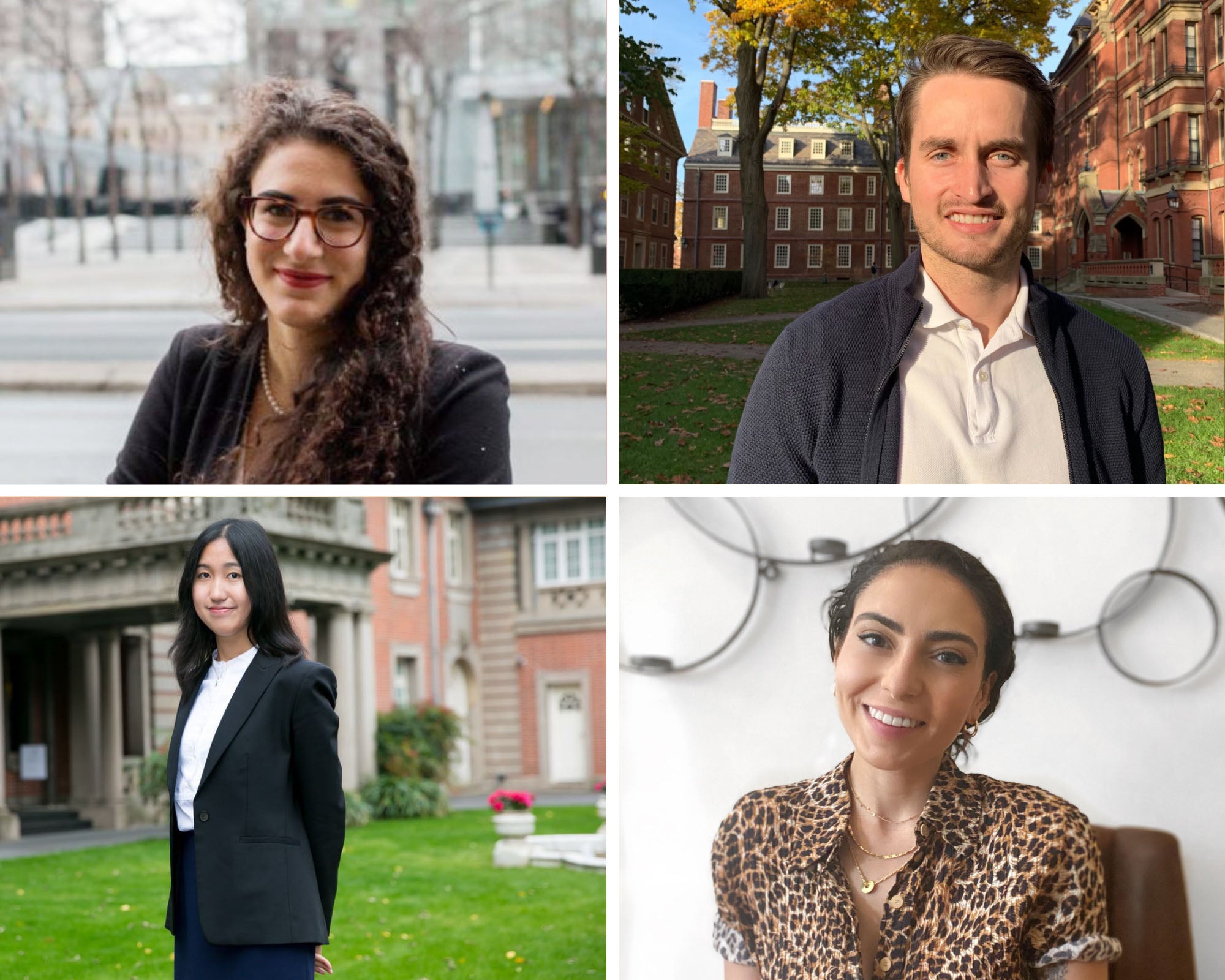The Salzburg Cutler Fellows Program, which focuses on developing leadership skills and forging connections for students interested in international law, brought together 53 students from leading law schools, including four from Harvard Law School.
This year’s HLS cohort, Marta Canneri ’22, Sean Quirk ’21, Delaney Sisiruca ’21, and April Xiaoyi Xu ’21 were chosen for their academic excellence and strong interest in international and public interest law. They were accompanied by Daniel K. Tarullo, the Nomura Professor of International Financial Regulatory Practice at Harvard Law School.
During the six-session program, which took place from March 11 to 27, law students from schools across the U.S. engaged with prominent legal professionals, public servants, and leaders in the fields of international law and public service. Because of the ongoing pandemic, the program convened online over several days rather than an in-person weekend in Washington, DC.
This ninth cohort of Salzburg Cutler Fellows represented many countries, including Canada, China, Ghana, Mexico, Sweden, Taiwan, Turkey, and the United States, maintaining the international nature of the program.
The 14 law schools taking part in the 2021 program included Chicago, Columbia, Cornell, Duke, Georgetown, Harvard, Michigan, New York University, Northwestern, Penn, Stanford, UC Berkeley, the University of Virginia, and Yale.
Speakers this year included Zeid Ra’ad Al Hussein, the Perry World House Professor of the Practice of Law and Human Rights at the University of Pennsylvania and president and CEO of the International Peace Institute; Sue Biniaz, the senior fellow for Climate Change at the United Nations Foundation who previously served as lead climate lawyer for the U.S. State Department; William Burke-White ’02, Richard Perry Professor at the University of Pennsylvania Law School and a leading expert on U.S. foreign policy, multilateral institutions, and international law; and John B. Bellinger III ’86, a partner at Arnold & Porter and former legal adviser to the U.S. Department of State and the National Security Council.
Hussein, who served as Jordan’s ambassador to the United States between 2007-2010, and represented Jordan before the International Court of Justice in 2004 and 2009, spoke candidly with the fellows about his previous role as the UN High Commissioner for Human Rights and the “diplomatic art” of human rights advocacy. “The power of human rights is immense when wielded properly,” he said.
Bellinger and Biniaz hosted a discussion on the creation of the Paris Climate Agreement and the move for the United States to rejoin it under the new Biden Administration.
Burke-White served as the faculty chair for the year’s program alongside Mark Wu, who is on leave from Harvard Law School while serving as a senior adviser to the U.S. Trade Representative.
This year’s fellows received individualized critiques on their student papers from faculty of the participating law schools, as well as advice on how to seek publication in journals. This year’s papers covered diverse topics, ranging from cyberespionage to refugee rights, to the interaction between international law and environmental sustainability.
In the program’s Knowledge Café, students discussed personal ambitions and potential career routes in international law with mentors from The World Bank, New Markets Lab, Rock Creek Global Advisors, the International Monetary Fund, Equality Collective, and the Office of Human Rights & Refugees in the U.S. Department of State.
Concluding this year’s program, Stephen L. Salyer, president and CEO of Salzburg Global Seminar, said: “Being a Salzburg Global Fellow is a life-long learning and problem-solving opportunity; we look forward to working with you and continuing these connections in the future.”
